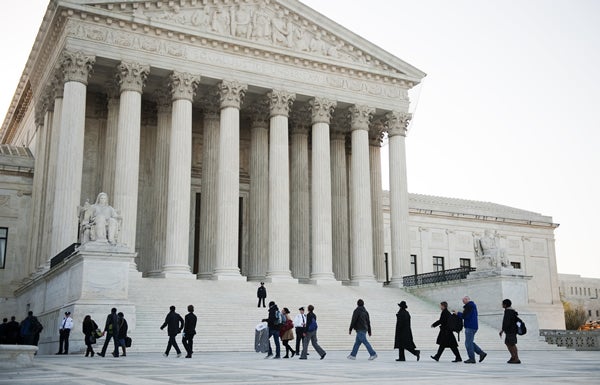Making the Case for Marriage
Andrew T. Walker /
As the Supreme Court prepares to hear cases involving California’s Proposition 8 and the Defense of Marriage Act (DOMA) in late March, a new report by Heritage’s Ryan T. Anderson helps focus on the central issues in the ongoing marriage debate. Anderson writes:
Marriage exists to bring a man and a woman together as husband and wife to be father and mother to any children their union produces. It is based on the anthropological truth that men and women are different and complementary, the biological fact that reproduction depends on a man and a woman, and the social reality that children need both a mother and a father.
As a matter of public policy:
Government recognizes marriage because it is an institution that benefits society in a way that no relationship does.… Marriage is thus a personal relationship that serves a public purpose in a political community.
Anderson articulates how marriage serves the cause of limited government:
Marriage is society’s least restrictive means of ensuring the well-being of children. Marital breakdown weakens society and limited government.… Marital breakdown costs taxpayers.
Finally, the consequences of redefining marriage, while appearing to be few, are many and far-reaching. Redefining marriage would put into law the principle that marriage is whatever emotional bond the government says it is. As Anderson writes, nothing about an emotional union requires it to be limited to only two persons—or for it to be exclusive or permanent, for that matter.
Anderson also stresses the effects of redefining marriage and its conflict with religious liberty:
Redefining marriage marginalizes those with traditional views and leads to the erosion of religious liberty. The law and culture will seek to eradicate such views through economic, social, and legal pressure. If marriage is redefined, believing what virtually every human society once believed about marriage—a union of a man and woman ordered to procreation and family life—would be seen increasingly as a malicious prejudice to be driven to the margins of culture.
The debate on marriage in America has just begun, and Anderson’s report shows the imprudence of redefining society’s most fundamental institution.

